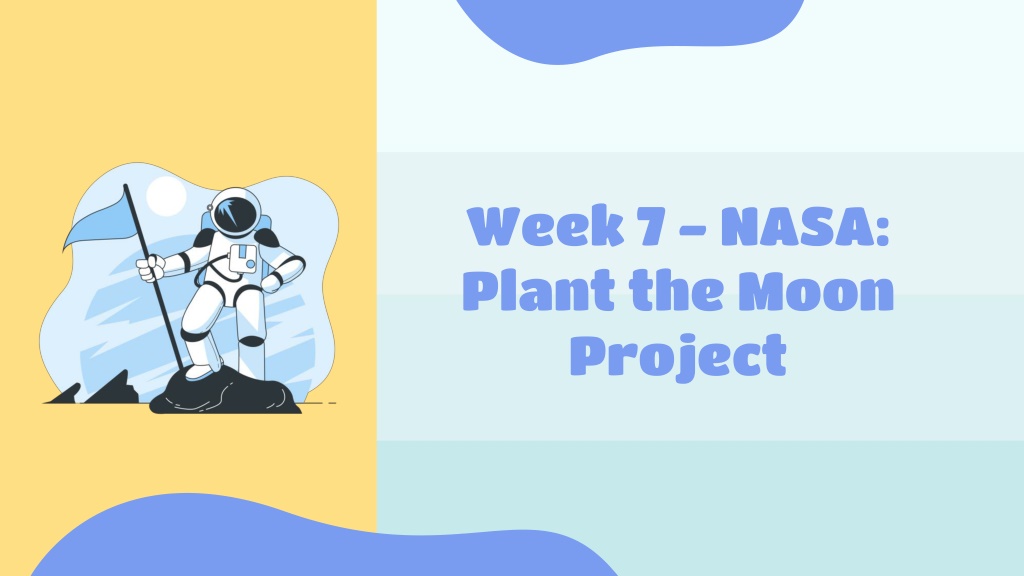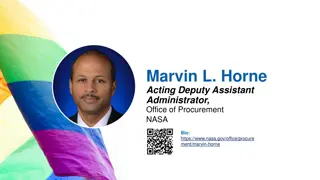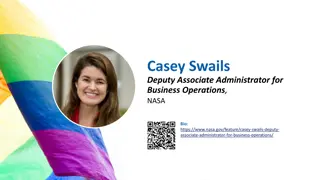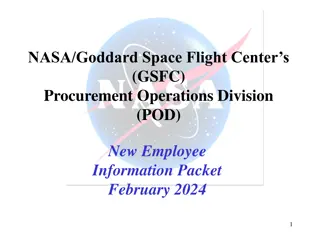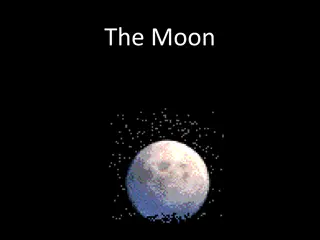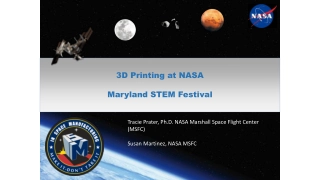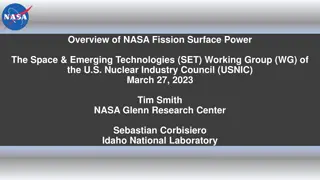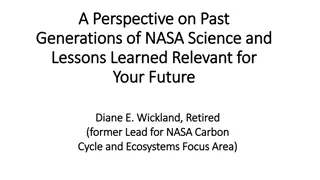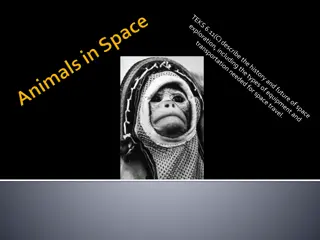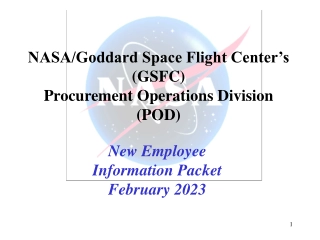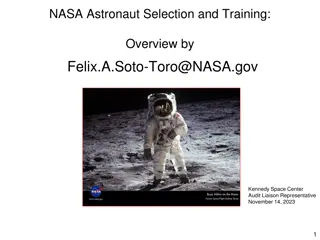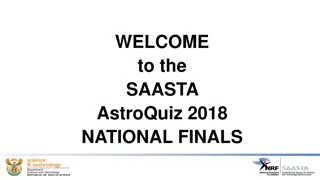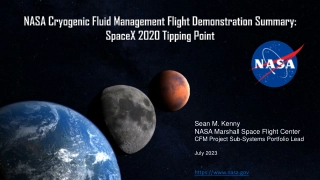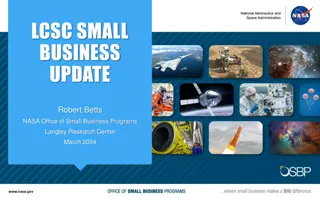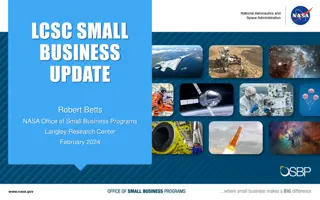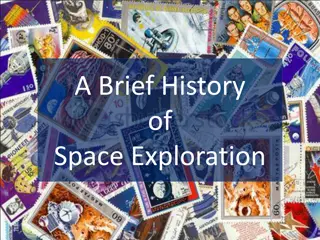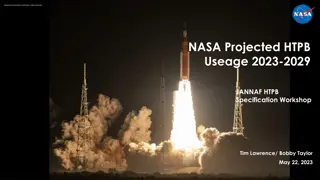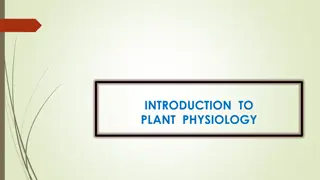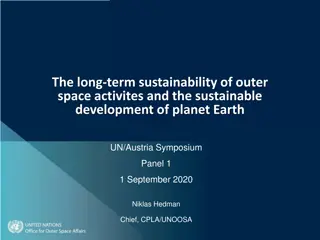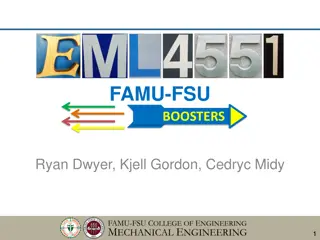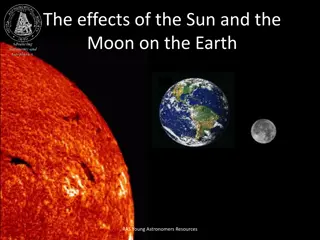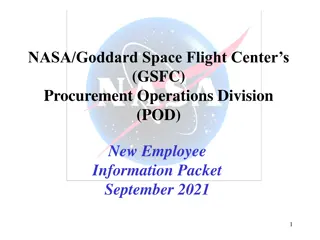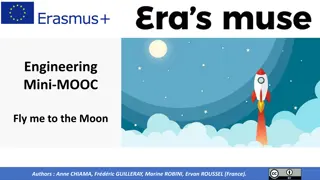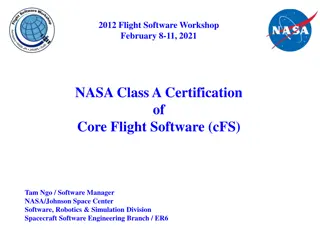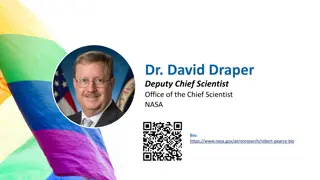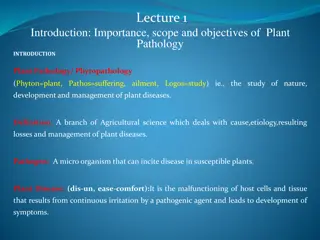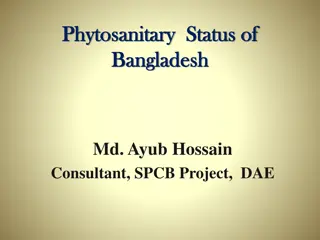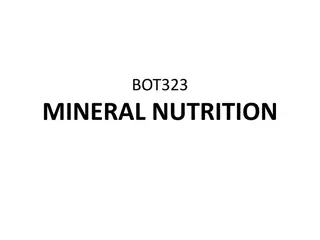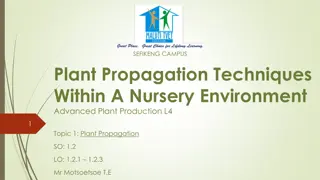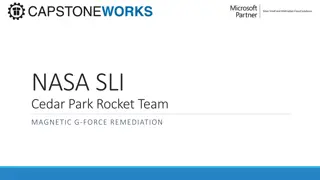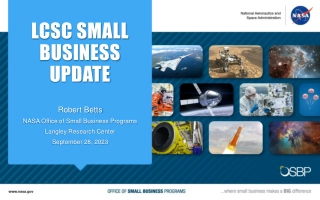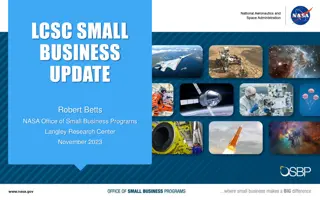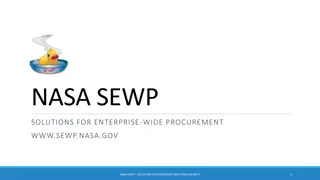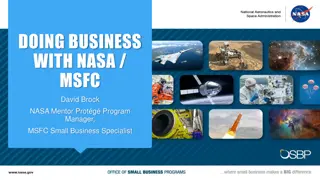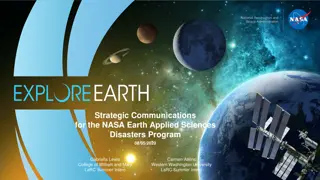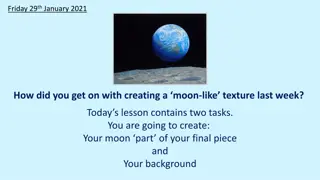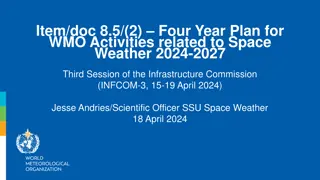NASA Plant the Moon Project: Engaging Space-themed Activities for Children
Explore the NASA-sponsored Plant the Moon challenge that encourages children to learn about lunar colonization through planting activities. This initiative aims to foster an understanding of sustaining life on the moon by planting seeds and overcoming challenges for successful growth, offering lesson plans for age groups 0-3 including sensory exploration, space-themed songs, and moon phases craft projects.
Download Presentation

Please find below an Image/Link to download the presentation.
The content on the website is provided AS IS for your information and personal use only. It may not be sold, licensed, or shared on other websites without obtaining consent from the author. Download presentation by click this link. If you encounter any issues during the download, it is possible that the publisher has removed the file from their server.
E N D
Presentation Transcript
Week 7 - NASA: Plant the Moon Project
Description: Embark on a space-themed adventure with NASA-inspired activities and projects. Engage in the Plant the Moon challenge sponsored by NASA, where children will learn about lunar colonization and participate in planting activities.
Description (continued): This group project will happen over the course of summer and submitted to NASA for more information go to The Challenge Plant the Moon Challenge
Overview of Plant The Moon Challenge: The Plant the Moon challenge is an initiative by NASAto explore the possibilities of lunar colonization. Children will discover the importance of sustaining life on the moon by planting seeds and understanding the challenges and innovations required for successful growth.
Lesson Plans for Ages 0-3:
Lesson Plans for Ages 0-3: 1. Sensory Space Exploration Materials: Sensory materials (e.g., moon sand, glitter, foil), toy rockets or spaceships Duration: 20-30 minutes Description: Set up a sensory exploration area with different materials that resemble the moon's surface. Let infants and toddlers touch, feel, and play with the sensory materials while incorporating toy rockets or spaceships into their play. 2. Space-themed Songs and Rhymes Materials: Song lyrics or rhymes related to space (e.g., "Twinkle, Twinkle, Little Star") Duration: 10-15 minutes Description: Engage infants and toddlers in singing space-themed songs or reciting rhymes related to stars, planets, and space exploration. Use props or visual aids to enhance the experience.
Lesson Plans for Ages 0-3: 3. Moon Phases Craft Materials: Paper plates, black construction paper, white and gray paint, glue, craft sticks Duration: 30-45 minutes Description: Assist children in creating a moon phases craft using paper plates. Cut out different shapes from black construction paper to represent the moon phases. Let children paint the plates white and gray to depict the phases and attach the cutout shapes accordingly.
Lesson Plans for Ages 0-3: 4. A Moon Phase Food Craft Gf option available -Be aware of food allergies Moon Phases Sensory Activity Materials: Oreo cookies (or similar cream-filled cookies) Duration: 15-20 minutes Description: Demonstrate the different phases of the moon using Oreo cookies. Show children how to scrape off the cream to represent the different lunar phases (new moon, crescent, half moon, full moon). Discuss the reasons behind the changing appearance of the moon.
Lesson Plans for Ages 4-7:
Lesson Plans for Ages 4-7: 1. Astronaut Training Camp Materials: Obstacle course props (e.g., cones, hula hoops, tunnels), stopwatch or timer Duration: 30-45 minutes Description: Set up an astronaut training camp with various physical activities and challenges. Create an obstacle course that incorporates tasks such as crawling through tunnels, jumping over cones, and balancing on designated spots. Time children as they complete the course and encourage friendly competition. 2. Rocket Science Experiment Materials: Film canisters, baking soda, vinegar, craft supplies for decorating rockets Duration: 45-60 minutes Description: Guide children in creating simple film canister rockets. Assist them in adding baking soda and vinegar to the canister, quickly sealing it, and placing it upside down. Watch as the chemical reaction causes the rocket to launch into the air.
Lesson Plans for Ages 4-7: 3. Virtual Space Journey Materials: Computer or tablet with internet access, NASA's interactive online resources or videos Duration: 30-45 minutes Description: Take children on a virtual space journey by exploring NASA's interactive online resources or videos. Watch footage of space missions, learn about different celestial bodies, and engage in interactive activities designed for their age group.
Lesson Plans for Ages 4-7: 4. A Moon Phase Food Craft Gf option available -Be aware of food allergies Moon Phases Sensory Activity Materials: Oreo cookies (or similar cream-filled cookies) Duration: 15-20 minutes Description: Demonstrate the different phases of the moon using Oreo cookies. Show children how to scrape off the cream to represent the different lunar phases (new moon, crescent, half moon, full moon). Discuss the reasons behind the changing appearance of the moon.
Lesson Plans for Ages 8-11:
Lesson Plans for Ages 8-11: 1. Mission to Mars STEM Challenge Materials: Craft supplies (e.g., cardboard, tape, straws), small objects to represent Mars rovers Duration: Multiple sessions (1-2 hours each) Description: Engage children in a STEM challenge where they design and build their own Mars rovers using craft supplies. Encourage them to consider factors like durability, mobility, and payload capacity. Test and improve their designs through various challenges. 2. Astronomical Research Project Materials: Library books, internet access, writing materials Duration: Multiple sessions (1-2 hours each) Description: Assign children a specific astronomical topic to research, such as a planet, star, or galaxy. Provide resources for them to gather information, take notes, and create presentations or reports to share their findings.
Lesson Plans for Ages 8-11: 3. Virtual Space Agency Visit Materials: Computer or tablet with internet access, virtual tours or presentations from space agencies or observatories Duration: 60-90 minutes Description: Arrange a virtual visit to a space agency or observatory through their online platforms. Let children explore interactive tours, watch presentations about space missions, and engage in Q&A sessions with experts.
Lesson Plans for Ages 8-11: 4. A Moon Phase Food Craft Gf option available -Be aware of food allergies Moon Phases Sensory Activity Materials: Oreo cookies (or similar cream-filled cookies) Duration: 15-20 minutes Description: Demonstrate the different phases of the moon using Oreo cookies. Show children how to scrape off the cream to represent the different lunar phases (new moon, crescent, half moon, full moon). Discuss the reasons behind the changing appearance of the moon.
Resources: Note:"The Planet Song" into the appropriate lesson plan to teach students about the planets. Space food Dehydrated ice cream sandwiches and strawberries order link- Amazon.com: Astronaut Foods Freeze-Dried Ice Cream Sandwich, NASA Space Dessert, Vanilla, 12 Count : Grocery & Gourmet Food-Be aware of allergies
Field Trip: Museum of Flight and Space Exploration (Ages 5 and Up) - Packed lunch provided.
Field Trip for Ages 5 and Up: Description: Embark on an exciting field trip to the Museum of Flight and Space Exploration, where students will have the opportunity to immerse themselves in the captivating world of aerospace history and space exploration. This engaging excursion will spark their curiosity and deepen their understanding of the vastness and wonder of outer space. Safety Measures: The safety and well-being of our students are of utmost importance. To ensure a safe and enjoyable experience, we will maintain a student-to-teacher ratio of 6:1, providing adequate supervision and guidance throughout the field trip. Our trained staff will be vigilant in ensuring the students' safety and adherence to museum rules and regulations.
Field Trip for Ages 5 and Up: Exploration Activities: During the field trip, students will have the opportunity to explore a wide range of exhibits that showcase real spacecraft, astronaut artifacts, and interactive displays. They will delve into the history of space travel, learn about significant space missions, and discover the fascinating technology behind space exploration. Engaging museum guides will provide informative and interactive presentations to enhance the students' learning experience. Interactive Experiences: The Museum of Flight and Space Exploration offers hands-on activities and simulators that allow students to experience the thrill of space missions. They can take part in simulated space missions, try out astronaut training exercises, and even experience the sensation of walking on the moon through virtual reality simulations. These interactive experiences will ignite their imagination and inspire a sense of wonder about the vastness of the universe.
Field Trip for Ages 5 and Up: Educational Opportunities: Knowledgeable museum staff will be available to answer students' questions and provide insights into the world of aerospace and space exploration. Students will have the chance to engage in discussions, participate in educational workshops, and gain a deeper understanding of the scientific and technological advancements that have propelled humanity's journey into space.
Conclusion / Note: It is crucial to emphasize the importance of proper behaviorand respect for museum exhibits and guidelines.Remind students to listen attentively to museum staffand follow all instructionsto ensure a positive and enriching experience for everyone. In some situations this trip may be replaced &/or include a trip to the local military air base. All trips are not a guarantee to camp however anticipated.
Debrief / Huddle As a group, discuss the following questions: One thing that was newto you regarding the content / lesson plans presented? One thing that was familiarto you regarding the content / lesson plans presented? Any storiesor previous experiencesregarding today s content on Week 7 -NASA: Plant the Moon Project?
Thanks! Do you have any questions? support@atccenter.org tel: (253) 368-9705 atccenter.org Slidesgo CREDITS: This presentation template was created by Slidesgo, and includes icons by Flaticon, and infographics & images by Freepik Flaticon Freepik Please keep this slide for attribution
